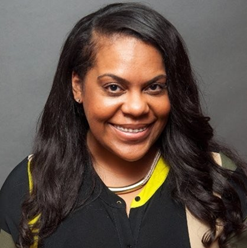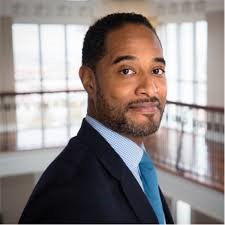“The strongest, most resilient nonprofit leaders know that you’re never done developing and changing as an organization,” says Vickie Lakes-Battle, Executive Director of IFF’s work in the Chicago metro region. “Serving communities effectively is a process.”
That process isn’t easy, however. Carving out the time to step back and strategize is a significant challenge for busy nonprofit leaders besieged with daily demands and unforeseen crises. And if they do find the time, there’s the issue of access. Implementing a strategy effectively often takes resources that may not be readily available: funding, expertise, and a deep network.
That’s why IFF, in partnership with financial training company Fiscal Management Associates (FMA), launched the Stronger Nonprofits Initiative (SNI) in 2017. So far, SNI has provided 20 outstanding Chicago-area nonprofits with access to loans, hands-on group workshops, real estate consulting services, and one-on-one financial coaching.
SNI is for organizations either led by people of color or serving communities of color. The program is fully funded by JPMorgan Chase as part of its $40 million pledge to connect Chicago’s South and West side residents with economic opportunity.
“We focus on meeting organizations and their leaders where they are, capitalizing on existing strengths, and building skills, knowledge, and infrastructure that is informed by our own expertise as well as the experiences and support of peer organizations,” explained FMA Senior Consultant and SNI coach Dana Britto.
Taking stock, optimizing the balance sheet, and preparing to buy a building
Nonprofit leaders participate in SNI for a variety of reasons.
 For Monica Woodson, CEO of the Albany Park Community Center (APCC), it was partly a question of timing. Woodson joined APCC in 2017, right as SNI launched, and felt it was the right moment in her organization’s storied history to take stock.
For Monica Woodson, CEO of the Albany Park Community Center (APCC), it was partly a question of timing. Woodson joined APCC in 2017, right as SNI launched, and felt it was the right moment in her organization’s storied history to take stock.
“APCC has been a staple in Albany Park since 1975. We were ready for a gut check – like when you’re in your 40s and find yourself asking, ‘OK, what are the next 40 years going to look like?’” she said.
Woodson also saw an opportunity to address a specific organizational challenge. APCC has grown immensely over the past four decades and offers a remarkable range of vital services, from early childhood education and youth development programming, to adult education and immigrant services, to workforce and business development. But the organization’s size and range have also gradually led to departmental siloes.
When I arrived, each department had its own budget. My leadership team and I wanted to eradicate those siloes and rebuild our budget process.
“When I arrived, each department had its own budget, which exacerbated the problem,” Woodson explained. “My leadership team and I wanted to eradicate those siloes and rebuild our budget process.”
 Christa Hamilton, Executive Director of Bronzeville’s beloved Centers for New Horizons (“Centers”), went into SNI equally budget-minded. She had heard about the program after working with IFF to refinance Centers’ mortgage and free up more than $100,000 annually in cash flow.
Christa Hamilton, Executive Director of Bronzeville’s beloved Centers for New Horizons (“Centers”), went into SNI equally budget-minded. She had heard about the program after working with IFF to refinance Centers’ mortgage and free up more than $100,000 annually in cash flow.
Hamilton was eager to explore additional ways she could optimize the organization’s financial health. “When Vickie [Lakes-Battle] told me about SNI, I was very excited because I’d been challenging myself to become closer to Centers’ financials,” she shared. “Without money there’s no mission.”
Another common reason leaders take time out of their busy schedules for SNI is they’re anticipating acquiring or rehabbing a building – and the program includes facilities assessments and access to a team of commercial real estate experts and loan officers who excel at working with nonprofits. Thirteen of the 20 SNI participants are currently planning real estate projects that they believe will help position their organizations to have an even bigger impact.
“We want to bring new life and energy into the community by purchasing and rehabbing a building, and then ultimately centralize our activities to attract more walk-ins,” Mark Sanders explained. “We felt like SNI would be a great place to begin that process.”
 Sanders is Chief Program Officer for the North Lawndale Employment Network (NLEN), which has been helping Chicagoans prepare for and find jobs for nearly 20 years. NLEN also founded Sweet Beginnings, an innovative subsidiary that manages urban apiaries (bee farms), produces beelove® products, and provides transitional employment to people returning from incarceration.
Sanders is Chief Program Officer for the North Lawndale Employment Network (NLEN), which has been helping Chicagoans prepare for and find jobs for nearly 20 years. NLEN also founded Sweet Beginnings, an innovative subsidiary that manages urban apiaries (bee farms), produces beelove® products, and provides transitional employment to people returning from incarceration.
In addition, Sanders viewed SNI as a logical supplement to other capacity-building programs NLEN had participated in, including one focused on the racial wealth gap. “When we learned about SNI, we decided improving our inter-organizational communications around finance would help us maintain the momentum we’d already built when we set a goal of helping 1,500 people in the community find gainful employment,” he said. “Achieving that goal will reduce North Lawndale’s unemployment rate by 10%.”
Who says budgets are boring?
A key area of focus during SNI workshops and coaching sessions is the budget process – which exceptional leaders like Woodson, Hamilton, and Sanders see as a big benefit. “Fiscal operations are the heartbeat of an organization,” noted Hamilton.
When it comes to those operations, all three say SNI helped them become “more planful,” as Woodson put it.
Before, we were coming up with the budget within the finance department and then funneling it down to the program level. After working with our FMA coach, we start at the program level and feed that up into the budget. The team loves it.
“We’re thinking ahead better,” Sanders agreed. “Rather than waiting for our director of finance to say, ‘All right, it’s budget season,’ our program directors started thinking about opportunities, as well as less certain areas to shore up, in January or February.”
SNI doesn’t just influence when participants budget; many also change how they budget. “Before, we were coming up with the budget within the finance department and then funneling it down to the program level,” Hamilton explained. “After working with our FMA coach, we start at the program level and feed that up into the budget. We sit with the program directors and hammer out the changing needs of the organization – for example, maybe we’re serving a new population and need an additional employment specialist. The team loves it.”
Added Woodson, “At APCC, each department used to do their own financial planning based on the award renewals they’d been getting for the past 10 or 15 years. But if you only give me a budget for an award you know is coming, why do I have development people?”
Her team now engages in a cross-departmental planning day. “It’s been huge for us,” she said. “We figure out what the coming year at APCC will look like and put everything on a whiteboard. Once we do that, we begin putting dollar amounts next to each item. It’s a way for the team to see what we want to achieve and then monetize it.”
Next, she envisions multi-year planning – another practice that SNI reinforces. “The end result will be an even more comprehensive approach to service delivery for our clients,” Woodson said.
Real estate and loan support that ‘set up good decisions’
“Amazing,” “fantastic,” and “critical in helping us get to where we are today” – that’s how Hamilton, Woodson, and Sanders describe their experiences working on real estate consulting and loan services provided through SNI.
The team didn’t just dump that $5 million number on my desk and say, ‘Good luck.’ They brought ideas on how we would get there through different loans and programs we were unaware of. We had a chance to brainstorm, put pen to paper, and come up with a real work plan.
“One of IFF’s real estate experts, Dennis Marino, came out and went through all of our buildings, some of which we’d been in for 47 years without any repairs or renovations,” Hamilton recalled. “It gave me and my board of directors a clear understanding of what to focus on – from immediate concerns we were unaware of like electrical issues and code changes, to longer-term projects like the $5 million renovation we’re planning for Elam House, a piece of property donated to Centers to help protect women and children.”
She was particularly struck by IFF’s supportive, proactive approach: “The team didn’t just dump that $5 million number on my desk and say, ‘Good luck.’ They brought ideas on how we would get there through different loans and programs we were unaware of. We had a chance to brainstorm, put pen to paper, and come up with a real work plan.”
NLEN turned to IFF for guidance in its quest to find and renovate a new facility. “Because of SNI, we’ve been able to do a more thorough scan of what’s available in the North Lawndale community, what’s within our price range, and what we can do with our existing property,” Sanders said. “Having IFF in our corner has been very helpful – it has set us up to make good decisions about relocating.”
Participants’ experiences working on the financing piece of SNI were also game-changing. “With Vickie Lakes-Battle’s assistance, we worked out a deal to get out of a lease that was weighing us down,” Woodson shared. “IFF was also able to give us a better interest rate on our mortgage and a growth capital loan. The process took some time, but I didn’t even have to go through a closing – money just appeared in our account.”
The intangible – but very real – benefits of peer networking
SNI was built to capture the power of interacting with peers. Few things are as invigorating as sitting in a room filled with people who know exactly what you’re going through.
Sanders can attest to that. “Just being in the same room with other program directors and knowing there’s somebody on the South side, the North side, or downtown who has the same challenges and issues I’m facing was refreshing,” he acknowledged. “You might feel alone in your job sometimes, but you really aren’t.”
Interacting with peers also provides the opportunity to share lessons learned, assess progress relative to others in the same market or of the same size, connect with people who can be a good sounding board, and draw inspiration from peers’ solutions.
“To see what other leaders have been able to do has been invaluable,” Woodson said. “For example, many of our clients are undocumented. And training them on soft skills and job searching isn’t enough. They still need to work. So, what do we do in this era, when certain factions of the country are hostile to immigrants, particularly those who are undocumented?”
She noted that NLEN also serves a population facing a lot of barriers – formerly incarcerated folks – and helped solve the entry-to-employment problem by founding the Sweet Beginnings subsidiary to provide transitional jobs. “It shows me that it can be done,” she explained.
In the meantime, Woodson and APCC are gearing up for their 45th anniversary celebration in June. And on the program side, she’s building on the organization’s strength in early education and exploring ways to ramp up its K-12 pipeline, “because those years between 12 and 15 are crucial.”
Few things are as invigorating as sitting in a room filled with people who know exactly what you’re going through.
The future is bright for NLEN and Centers for New Horizons as well. “People are graduating every month, accessing credentials, and finding jobs. What we’re doing is working,” Sanders said.
On Hamilton’s watch, Centers has grown to approximately 250 full- and part-time employees, up from about 150 when she started five years ago. “We’ve been able to create more jobs and more leaders,” she said. “And while we continue to serve Bronzeville, the community where we were founded and have operated historically, we’re growing throughout the city, touching more neighborhoods with families in need – from North Lawndale all the way through the Riverdale community.”
She added: “We’re excited to be doing our part to rebuild Chicago and save lives. And I feel more prepared and equipped to ensure we have a plan that’s going to keep us open from year to year. I’m really appreciative that IFF, Fiscal Management Associates, and JPMorgan Chase offered the Stronger Nonprofits program.”
For more about SNI and a full list of participants, see Stronger Nonprofits Initiative: 20 organizations served, countless ideas and connections sparked.